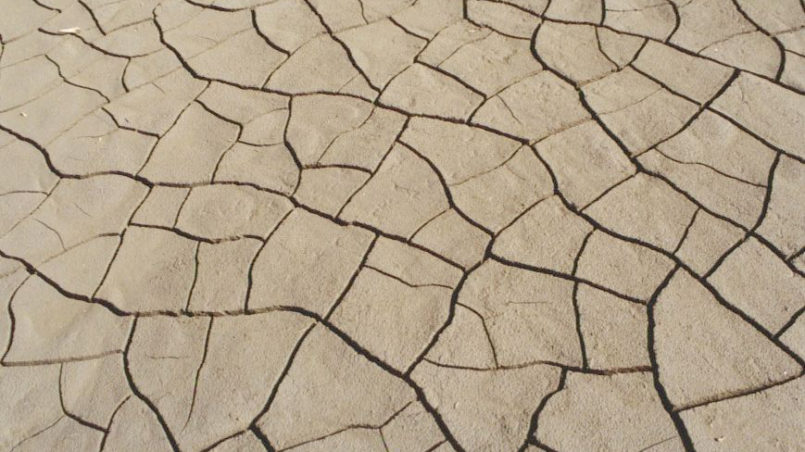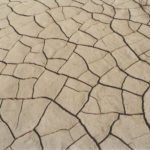What are the Challenges Facing Humanity? – Prof. Václav Cílek

Alexander Stipsits from Idealism Prevails had the great opportunity to meet Prof. Václav Cílek – Czech geologist, climatologist, writer, philosopher, science populariser, translator of Tao and Zen texts and director of the Geological Institute of the Czech Academy of Sciences. In a series of three parts, Sascha addressed certain topics with Prof. Cilek. Part 1, which has already been published (How Do You, as a Scientiest, Treat Information?), dealt with the handling of information. This is now part 2:
Now that we have established some basics, I would like to go further and ask you what do you consider the humanities’ main challenges to be? I am asking this because I sense an increasing unease in society concerning the future such as I have not been feeling in the last 30 years or so. Why is that, what may be the reasons for that?
These matters are of course difficult to describe but let’s try and give an abbreviated version. First, when we look at history, let’s say from the 18th, 19th century onwards, we have been in a period of constant transformation. Especially considering 1848 on the social level, and 1890 with the first Industrial Revolution. Then I see the First and Second World War as practically one conflict, like the war of the Peloponnese in Old Greece, and I see a continuation of this process.
So, when people say it is the end of the “Abendland” our civilisation, it is for me a transformation over a certain period of time. When we speak about the end of a civilisation we imagine it like in a Hollywood movie: an asteroid is coming, the Ice Age is coming, in two hours, or two days, and so on … here is a disaster and then a hero will appear.
What we actually are experiencing is a confluence of a variety of factors which are deteriorating. For me, it is something like the Greek cycles. The Greeks believed there is a cycle and one part of that is the erotic cycle, the attracting force that puts things together. Big nations, big empires, big bangs, big monopolies … and so on. The process at a certain stage will reach its zenith and the other side of the cycle, called chaotic, awakens.
“Chaotic” has something like the quality of an enemy. This is the time when big companies are falling apart, big nations are falling apart, minorities are demanding independence (like the Catalans, the Welsh, the Scots, Czechoslovakia is broken …).
It seems to me we are now at the zenith of the process and “going down“. It does not mean “the end” of civilisations for me. It means a new phase. I believe this new phase is going to be a difficult one because of several contributing factors. The economic system is not stable, ever-changing, climate change is coming, we are feeling the droughts, and maybe overpopulation in certain areas of the world. A feeling of lack of security, the rise of China …
So there are simply too many changes happening on individual timescales. The coming changes may be as severe as the Second World War. It starts with the climate. This already means there are regions with more water, and some with practically none, areas with too little food which results in diminishing security, increased migration and so on.
By the way, if you look at the map of Europe, you see drought-affected areas such as, for example, the southern half of Spain. This year also in central Italy. More long-term it affects Greece, Bulgaria, Romania and, surprising for me, eastern Ukraine. And I am not talking about the southern Mediterranean and beyond which has been under drought conditions already for over 20 years, and will continue, also into the eastern Mediterranean reaching to Turkey.
But the enigma for me is really eastern Ukraine. There you can see some of the worst coming droughts in Europe. Why? You see, as societies, throughout famines and such, having been closely related to agriculture for thousands of years, when something happens with the climate, we are psychologically affected.
A drought is not only about a lack of water, it is about our soul, it’s about what is happening with our mentality. So when people experience increased dry seasons, they feel endangered. Because of deep even pre-historical experiences. And when you feel endangered, you vote for politicians who will promise you something.
So, politicians realise that this brings them votes, and then other parties get into the game. As the feeling of danger persists, the parties become increasingly aggressive towards each other, possibly creating their own security forces, later then their militaries might be formed. Then you end up in a conflict like in the Ukraine where, as a result of the collapse of the Soviet industries, the social fabric has already been weakened.
Still, I believe the situation of the drought has a trigger effect. And if you look around the world from this perspective, you will see the worst droughts are, for example, in Somalia, and there might be something stirring in Pakistan, Afghanistan, a huge number of young people, a strong war ethos, and coming droughts. The number of trees in Afghanistan since the Soviet invasion has declined by up to 90%. Trees were cut down to keep the resistance fighters from hiding in the woods, and the rest has been felled by people who had nothing to cook or warm themselves with.
Simply put: we can look at one area of change, let’s say the climate, and from there deduce possible future developments.
In the third part of the interview with Prof. Václav Cílek, which will be published shortly, the detailed reasons for climate change will be examined and the reasons why so many are not sufficiently interested in effectively reacting to it will be investigated.
Credits
| Image | Title | Author | License |
|---|---|---|---|
 |
Duerre- | Stefan Kühn | CC BY-SA 3.0 |
